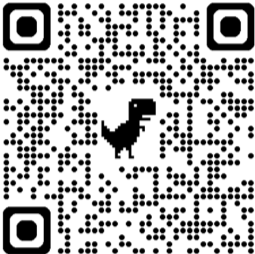Unit 2: Period 3 APUSH - American Revolutionary War
Conflicts and the American Revolutionary War (1754-1800)
Create multiple-choice games on Wisc-Online and play them on our Chakalaka mobile app!
But that's not all! Explore educational games created by others. Simply search by category or enter agame code number and dive into a world of learning and fun.
Download the Chakalaka mobile app here:

Topics of this game:
- Passed by the Parliament. It was created to help pay the expenses involved in governing the American colonies. It initiated taxes on glass, paint, etc
- Street fight that occurred on March 5, 1770, between a "patriot" mob, throwing snowballs, stones, and sticks, and a squad of British soldiers.
- AKA Coercive Acts. A series of British measures passed in 1774 and designed to punish the Massachusetts colonists for the Boston Tea Party
- American colonists who remained loyal to the British Crown during the American Revolutionary War
- A social reform effort to abolish slavery in the US. Occurred in 1800 to 1865, when slavery was officially outlawed in the 13th amendment
- The idea that women should be taught to uphold ideas of Republicanism. They would pass their Republican values to further generations.
- The first constitution of the United States. It went into effect on March 1, 1781. However, the people saw problems in the documents.
- Provided a method for admitting new states to the Union from the territory, and listed a bill of rights guaranteed in the territory.
- Someone who believes in the type of political system which states or territories share control with a central government. Alexander Hamilton was this.
- A person who opposed the adoption of the U.S. Constitution.
- A document that officially records the proclamation that the United States is an independent country from Great Britain.
- Signed on September 3, 1783, between the American colonies and Great Britain, ended the American Revolution and recognizes US independence
- The body of delegates who spoke and acted collectively for the people of the colony-states that later became the United States of America.
- Smith's idea of pursuit of self-interest, division of labor, and freedom of trade.
- A series of violent attacks on courthouses and other government properties in Massachusetts that began in 1786 and led to a military confrontation.
- A formal meeting held in 1787 for the purpose of creating a constitution for the United States.
- The first 10 Amendments to the Constitution. It spells out Americans' rights in relation to their government. It guarantees civil rights and liberties
- A diplomatic incident between French and United States diplomats that resulted in a limited, undeclared war known as the Quasi-War.
- Laws that raised the residency requirements for citizenship from 5 to 14 years, authorized the president to deport and arrest these "aliens".
- Established the judicial review, the power of the federal courts, to declare legislative and executive acts unconstitutional.
- The purchase of rights to the western half of the Mississippi River basin from France by the United States in 1803.
- The war brought an end to the American practice of paying tribute to the pirate states and helped mark the end of piracy in that region.
- It effectively destroyed the Indians' ability to resist American expansion east of the Mississippi River. (Jackson is considered a hero)
User comments are currently unavailable. We apologize for the inconvenience and are working to restore this feature as soon as possible.

